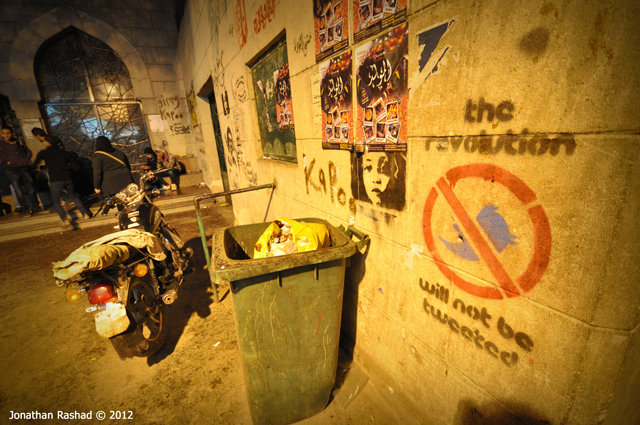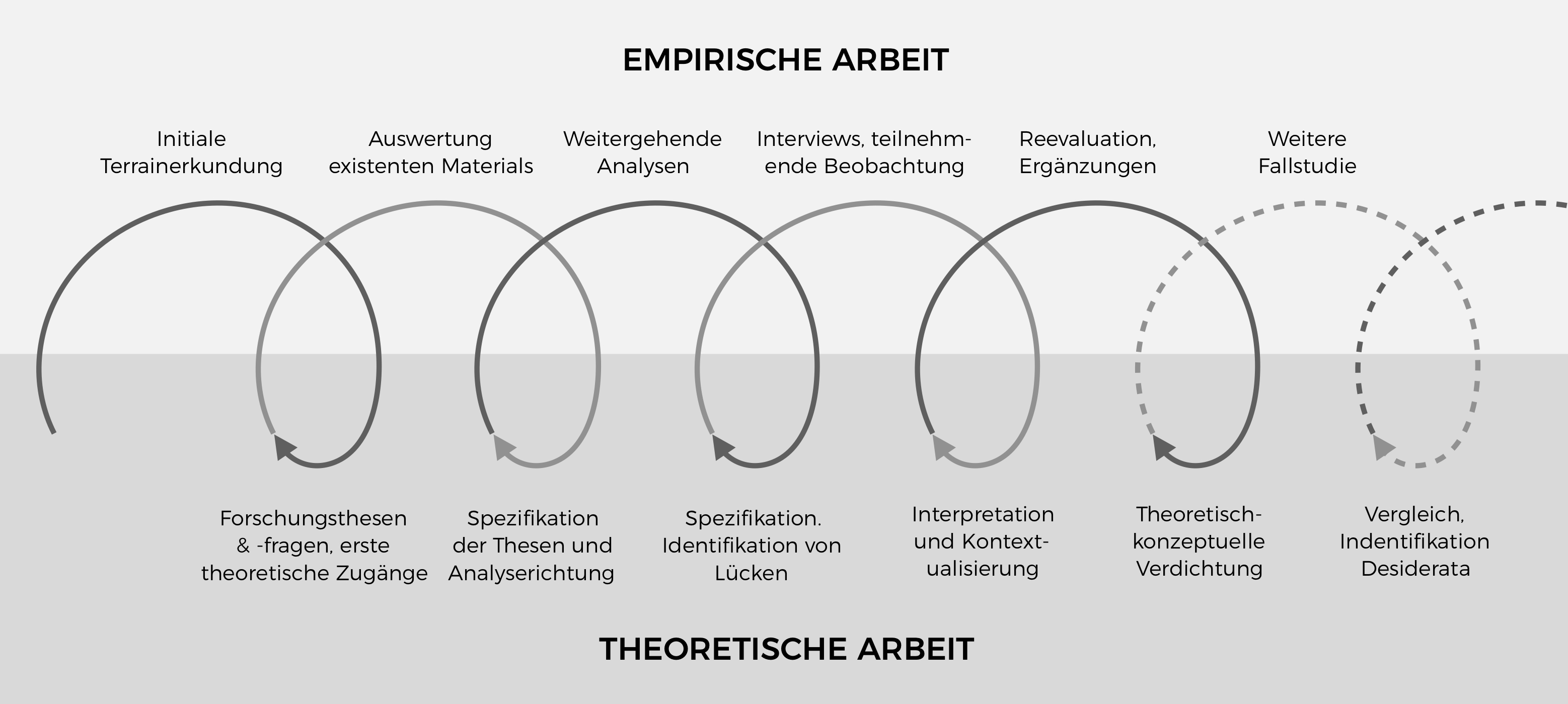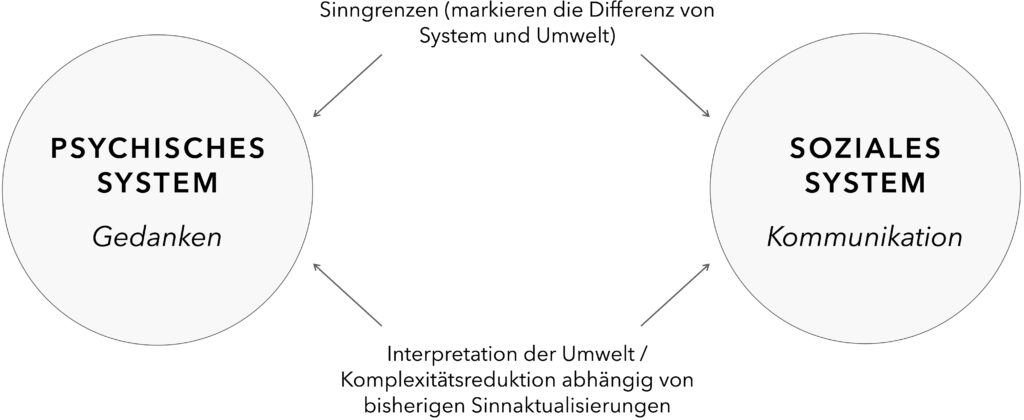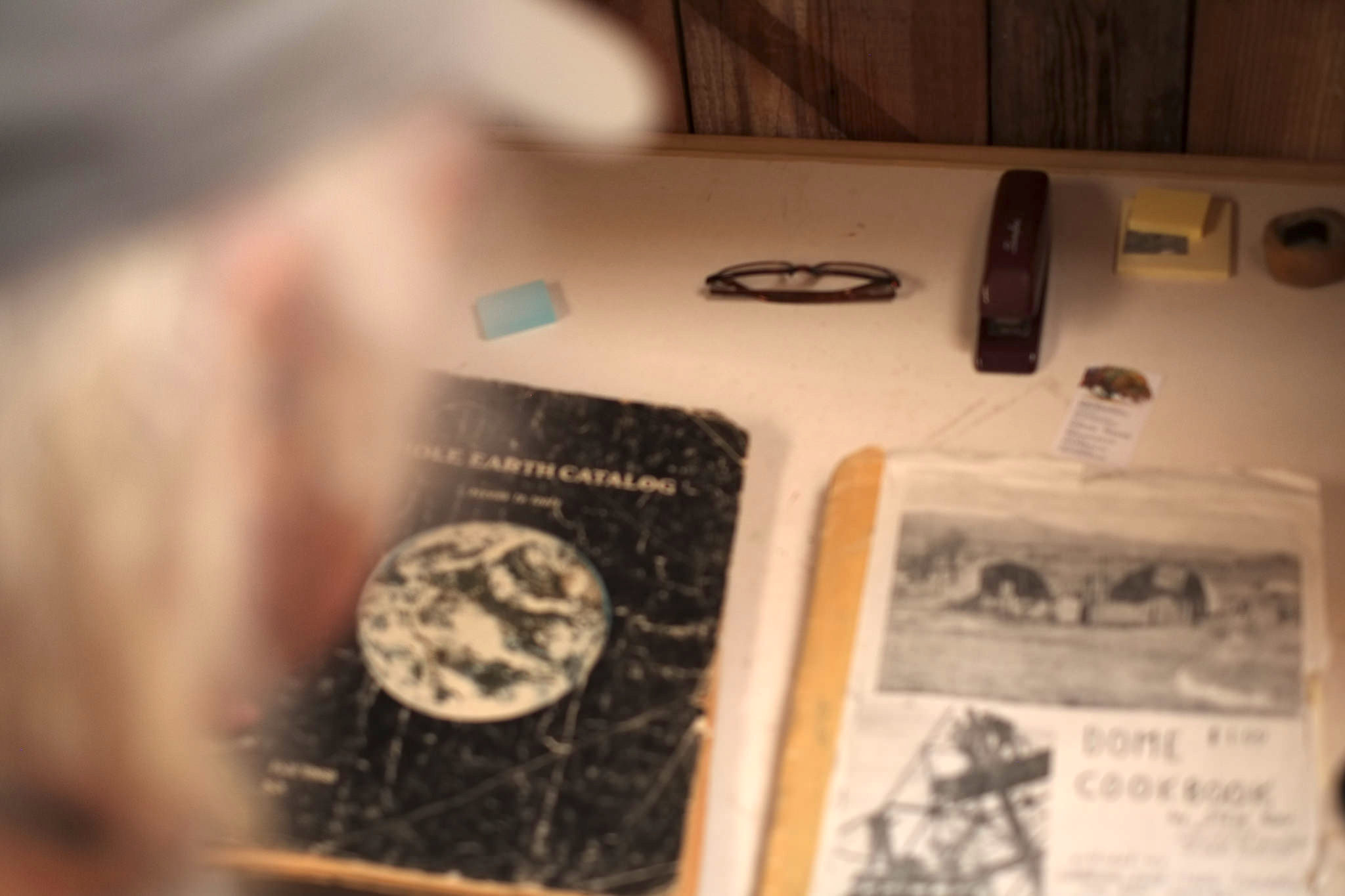»The revolution will not be tweeted«
5. September 2012Aus: Wiederkehrende Erwartungen (Amazon |Fachverlag Werner Hülsbusch).
Im Herbst 2011 fand sich an diversen Mauern der ägyptischen Hauptstadt Kairo ein englischsprachiges Graffito, das nach Einschätzung einiger Blogger daran erinnern sollte, »that the revolt will not come from behind a computer screen« (Pangburn 2011): »The graffito certainly holds true for Egypt, which utilized Twitter and Facebook only as tools, but it might as well apply to every nation on Earth.« (Bildquelle verlinkt)
Vermutlich bezog sich der Künstler auf Gil Scott-Herons (1970) Song »The Revolution Will Not Be Televised« und einen ähnlich betitelten Artikel von Malcom Gladwell (2010), der sich mit Clay Shirkys (2008) These auseinandersetzt, dass sich Menschen und Gruppen im Online-Zeitalter deutlich schneller und bequemer mobilisieren ließen. Gladwell hingegen warnt davor, zu weitreichende Hoffnungen an Social Media per se zu richten:
»Shirky considers this model of activism an upgrade. But it is simply a form of organizing which favors the weak-tie connections that give us access to information over the strong-tie connections that help us persevere in the face of danger. […] It makes it easier for activists to express themselves, and harder for that expression to have any impact. The instruments of social media are well suited to making the existing social order more efficient. They are not a natural enemy of the status quo.“
Ähnliche Artikel
















Since January, I’ve also been tweeting about the Arab revolutions, pretty much day and night. Does that make me a revolutionary? Not at all. Despite all the sweeping talk about it, Twitter isn’t the maker of political revolutions, but the vanguard of a media one. In just a short time, it has become a real-time information stream for international-news junkies. So forget all the extravagant other claims for it. Isn’t that one revolutionary enough?
Who is driving this change?When you’re following these people, or interfacing with the activists who organised the Egyptian revolution and the people in Occupy , the international anti-capitalist protest movement, what you realise is that at the centre of all the events are what I call graduates without a future.